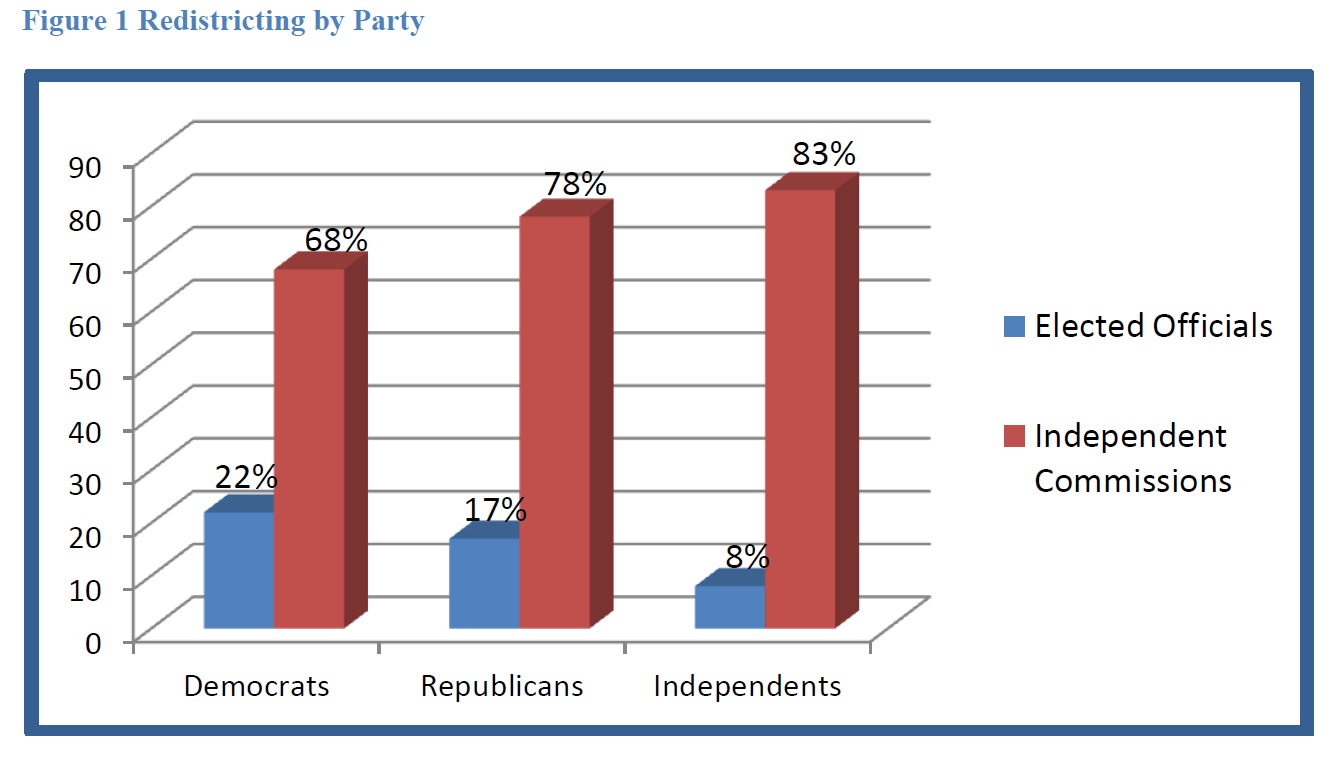 More than two-thirds of Maryland voters support redrawing legislative district lines using an independent commission, rather than by elected officials, according to a new poll.
More than two-thirds of Maryland voters support redrawing legislative district lines using an independent commission, rather than by elected officials, according to a new poll.
The Greater Baltimore Committee paid for the redistricting question to be added to the Gonzales Research poll released Thursday. The question followed up on a July commentary by GBC President Don Fry criticizing the lack of competition in legislative races.
During the first two weeks of October, the Gonzales poll telephoned 819 registered voters and asked this question:
“The U.S. Constitution requires states to create legislative voting districts and to adjust these districts every 10 years to reflect census results. In Maryland, voting districts are drawn up by the state’s elected officials. In some other states, voting districts are drawn up by independent commissions.”
“In your opinion, which is the better approach?”
Statewide, 73% of voters favored independent commissions, but there was some variation by party. Among Democrats, whose party controls the current process, 68% supported the commission. Of Republicans, 78% did, as did 83% of independents. (See chart above.)
Maryland constitutional amendments have been proposed to change the current process, but none have made it out of committee.
In his commentary, Fry, a former Democratic senator himself, said that as a business advocate the issue isn’t about politics for him.
“I’m not suggesting Maryland’s current legislative representatives and leaders would not be elected to serve in Annapolis or Washington if they were to run for office in less artificially convoluted and more competitive legislative districts,” Fry said. “I’m simply suggesting that, in the name of creating a better political balance of ideas that will lead to better policy solutions, it might be worth a try.”
SPENDING AFFORDABILITY: Eileen Norcross of George Mason University’s Mercatus Center responded to Thursday’s blog by Maryland Reporter about the recurrence of Maryland structural deficits with a blog of her own for the Maryland Public Policy Institute, a free-market oriented think tank.
“Maryland’s budget troubles are not so much due to one poorly managed agency – it’s the persistence of structural deficits,” Norcross stated. “The way Maryland claims to limit spending doesn’t work very well – if the aim is budgetary restraint.”
“The institution meant to control spending, the [Spending Affordability Committee], has typically recommended spending increases over a period of decades based on a subjective set of criteria that are difficult to verify. The SAC only considers a portion of the budget – leaving over one-third of spending outside of the limit. And in recommending a spending limit, the SAC considers the state’s ‘spending needs,’ indicating the SAC is at once considering policy preferences and ‘affordability.’”
“If Maryland is interested in reining in spending, that the state [should] adopt a clear, easy-to-verify- mathematical rule that ties spending growth to population and inflation growth.”
The Department of Legislative Services disputed Norcross’s findings last year, and she includes a link to the DLS response in her blog.
–Len Lazarick
Len@MarylandReporter.com








Eventually the Supreme Court will have to take up a case of whether it is unconstitutional for a state to take an entity such as a city or County, fragment it, and then add a contiguous piece of it to another nearby city or county to create artificially slanted Democratic or Republican legislative districts.
I do not accept the premise that manipulating districts to deprive the other party of a seat in Congress should be the overriding goal of redistricting. The current process is bad for Maryland voters of all parties. How does it benefit Montgomery County residents to have the county split into three districts that go from the western tip of the state to Chesapeake Bay? How well are the fragmented communities in Districts 2 and 3 being represented? Could a redistricting commission possibly do any worse?
If you think MoCo is bad, take a look at Anne Arundel Co. Thanks to the O’Malley redistricting we’ve been sliced & diced, in some cases, block by block to dilute any opposition to the one party rule especially on the congressional front. To imply that we can trust no one to put aside their political leanings to do what is best for the people of MD further ingrains the opinion that MD politicians, especially the Dem majority, are only interested in retaining power by any means necessary.
John Z. Wetmore and Abby Adams: As I opined earlier, drawing district lines to maximize the number of elected members of one major party or the other is not just localized to Maryland and Democrats in Maryland. Republicans do it too wherever they control both the governorship and the legislature. With regard to congressional redistricting, the powers that be (Democrat or Republican) try to create as many seats for their brand as possible. If only one party does it where they can and the other party doesn’t, the latter loses a degree of power and politics is all about power. A redistricting commission in Maryland would result in less power for Democrats nationally. Whether that’s good of not depends on your point of view.
Yes, the congressional district map created for Maryland after this past census was horrific to look at and I thought they should have tried to make it less so. That was why I voted at the referendum to send it back for a redrawing. It might have been made a little more presentable if a majority of the voters had voted as I did.
When such Republican-controlled states as Texas and North Carolina do their legislative (and other) redistricting via “independent” commissions (which will only happen if a federal constitutional amendment requires it), I can understand Democratic-controlled Maryland joining them. Until then, no way! This is very much a political question involving political power. When Republican states can and do maximize their numbers in legislative (and congressional) office via party-controlled redistricting, Democratic states MUST do the same or commit political suicide. Beyond the political aspect of this matter lies the matter of how to create these supposedly independent commissions. Who is going the name the members of such commissions (and won’t these namers have partisan interests)? Unless mathematicians can be imported from Mars, I expect that they will. Anyone with an interest in the process probably cares about the result. And how pure, innocent, and devoid of partisan interests will the appointees be? No, there is not likely to be the perfection desired by some idealists coming out of redistricting via “indpendent” commissions. In Maryland, in the absence of a federal constitutional amendment governing the process for ALL states, it would just be Democrats engaging in unilateral surrender. In Republican states, it would be their party doing the same thing.